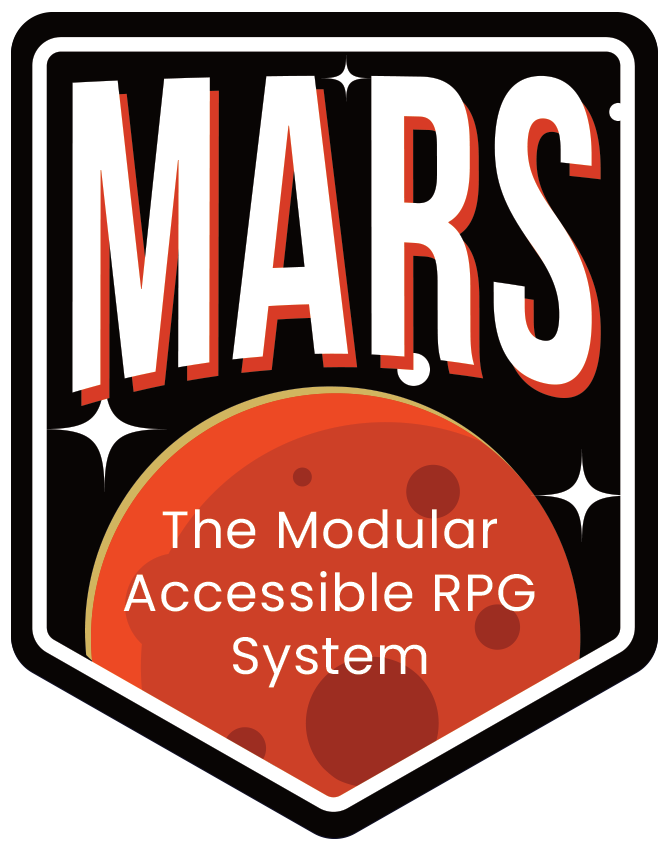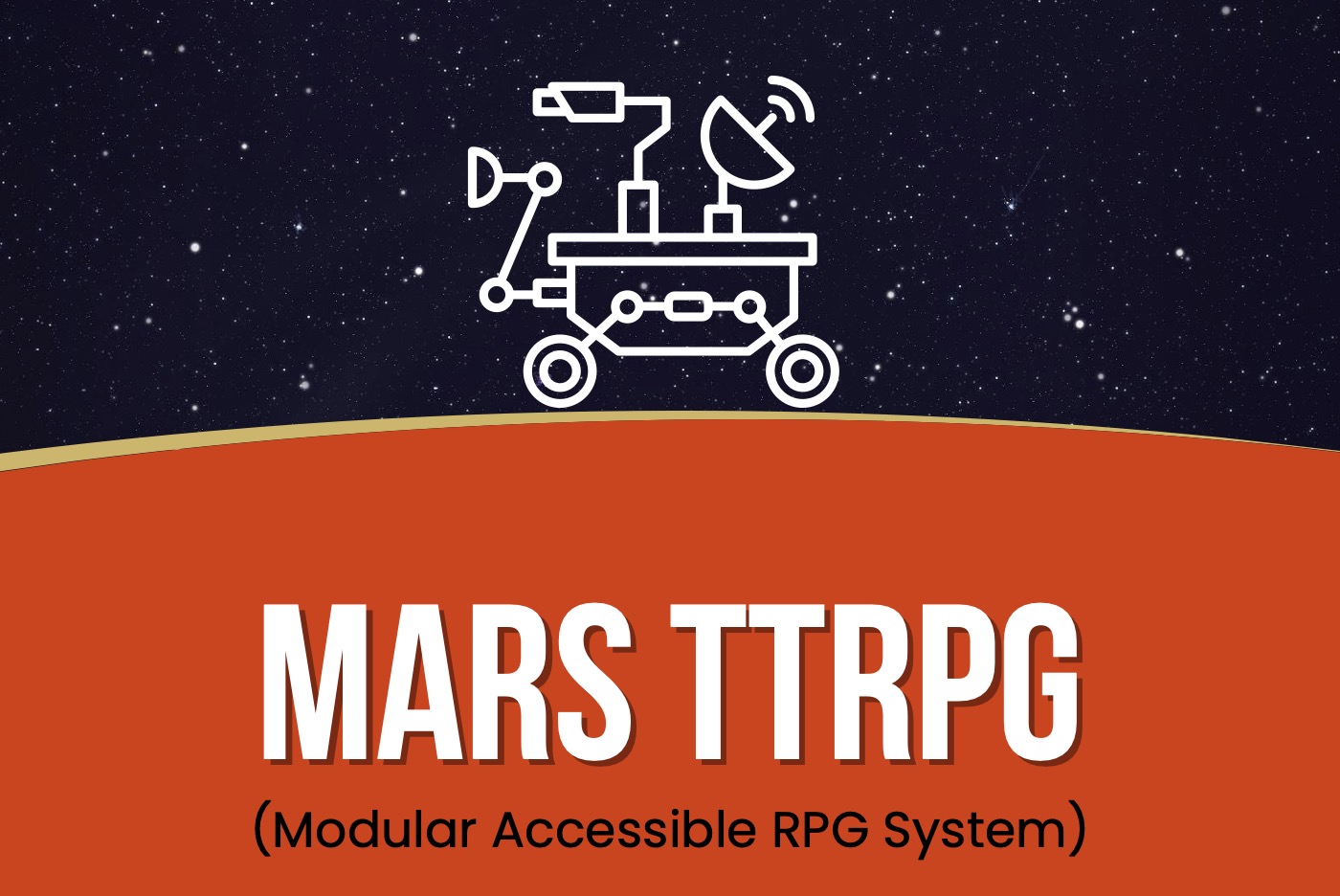Introduction
Abilities are an optional addition to your Character Sheets. They act as prompts for Players around Actions they might like to take. They confer no additional benefit over just ‘making up’ any creative Action on the spot.
So why have them? Some Players find open-ended free-form roleplay a real challenge, especially when they’re not familiar with TTRPGs. MARS is designed to be accessible to all and able to be adapted to contexts where you have Players with mixed experience (e.g. a workplace environment).
Abilities can also help provide a form of consistency to your gaming session and it’s Setting and theme. However, they do not stop your Players from making up new creative Actions they want to take at any time.
We recommend each Character has 3 Ability Slots on their Character Sheet at Level 1. Characters may add an additional Ability Slot and define an Ability at Levels 2 and 4 (for a total of 5 Ability Slots).
Setting Ability Library
A Setting may define a list of Abilities Players can choose to take, or they can make up their own.
This Setting Ability Library will usually be categorised by the Types of Characters in that world (e.g. Races, Factions, Classes, etc).
Abilities should be specified with a Name, Detail, and associated Skill Threshold that will be rolled against when performing the Ability.
Example Abilities
- Tongue Lashing: You give them a piece of your mind, and point out a personal flaw they were quite sensitive about. [Emotional]
- Vicious Comeback: You reframe what they’ve said and use it against them, if all else fails their mamma gets referenced. [Social]
- Merge Conflict: You frustrate their progress by pointing out their code did not merge cleanly, this will set them back at least half a day. [Intellectual]
- Pugilist: You punch things. It’s not all that clever really is it? But there you have it, punchy. [Physical]
- Fireball: As you draw magical energy from air around you, you feel your hands heat up, then go ice cold as you push a ball of pure flame toward your target. [Physical]
Special Abilities
Special Abilities are an optional Sub-Module for Abilities. Special Abilities can add extra mechanics for increased interest.
For example, many Magic Spells are Special Abilities as they add additional mechanics on top of the usual Skill rolls and Stress effects.
Note: Special Abilities are great for more advanced Players, but may add too much complexity for beginners.
Again, Special Abilities should be specified by your Setting Ability Library and/or made up and agreed by your Players and GM.
Abilities should be specified with a Name, Detail including mechanics, and associated Skill Threshold that will be rolled against when performing the Ability (if relevant).
Feel free to get funky with Special Abilities, however we recommend not granting additional Advantage dice as that reduces the incentive to creatively tap Backstory or collaboration for Advantage.
We recommend each Character has at most 1 Special Ability at Level 1. Characters may take an additional Special Ability at Levels 2 and 4 (for a total of up to 3 Special Abilities across 5 Ability Slots).
Passive Abilities
Most Abilities are considered Active Abilities because you must choose to trigger them by making a creative Action or on your Turn during a Conflict or Competition.
Because Special Abilities can introduce new mechanics this opens the door to also define Passive Abilities. These Abilities trigger automatically in response to other Players, NPCs or changes in the environment. Passive Abilities are especially useful in Conflict because they can trigger and deal Stress outside your Turn.
Example Special Abilities
- Leap: You leap forwards arcing 10 feet in the air at apogee, landing up to 20 feet away. [Physical]
- Thorns (Passive): For the next 3 rounds or 30 minutes, whichever comes first, 50% of any Stress applied to you is also applied it’s source. You can do this once a day. [Physical]
- Set trap (Passive): For the next 2 rounds or 20 minutes, whichever comes first, any creature or object that comes within 5 feet of the trap take 1 d20 Stress. The trap is then disabled. You can do this 3 times daily. [Physical]
Note: Remember the more powerful a Special Ability, the more it needs to be balanced with limitations. Consider specifying how long the ability lasts and how often it can be used.
Levelled Special Abilities
A Setting Ability Library may define different more powerful variations of the spell available as a Character’s related Skill Levels-Up.
Now go play!
You can run games now that involve complex Actions with their own mechanics that can even level up with your Players. If you’d like to allow Items to carry these kinds of Special Abilities and mechanics, read on to the Special Items Module.

